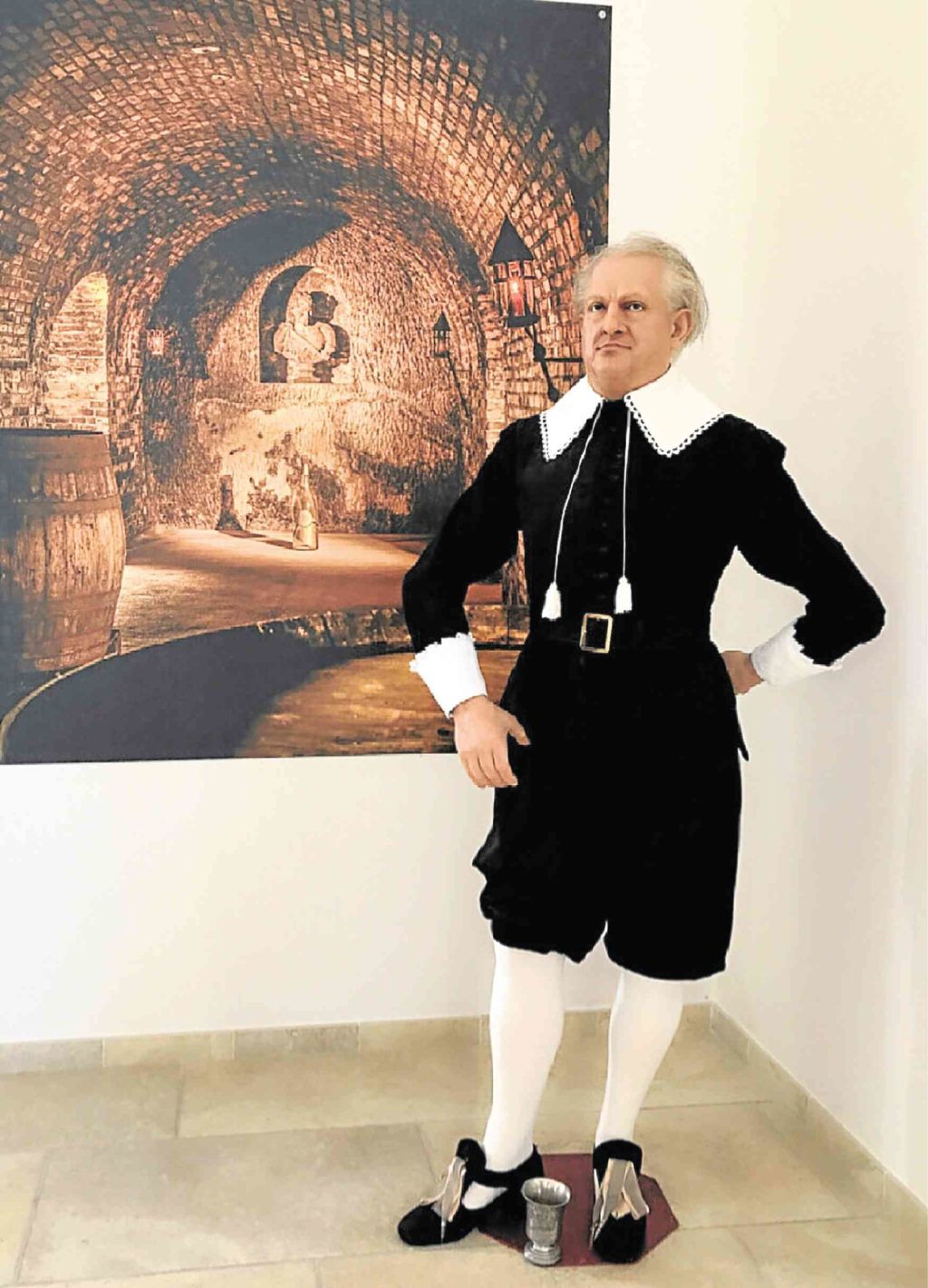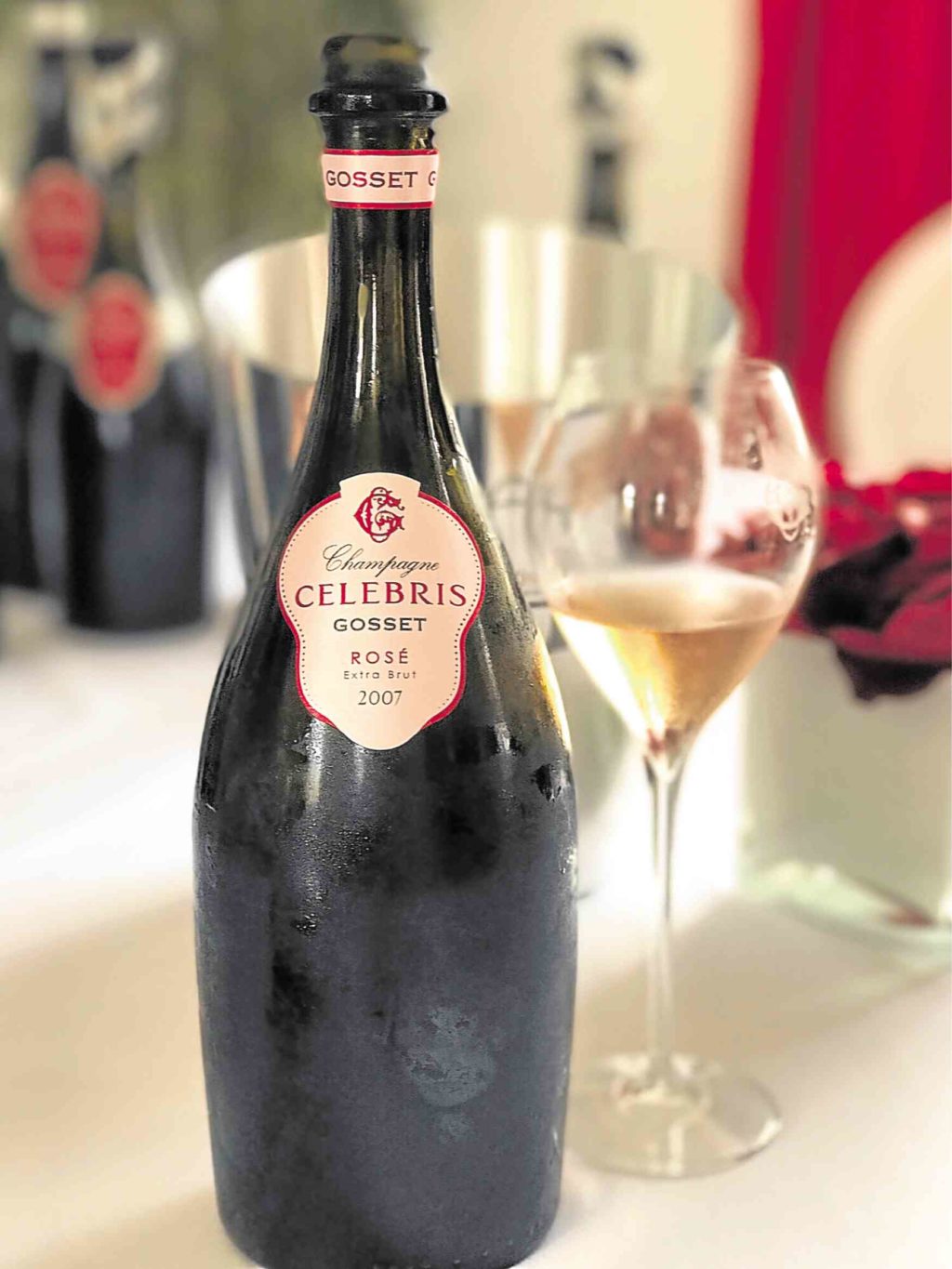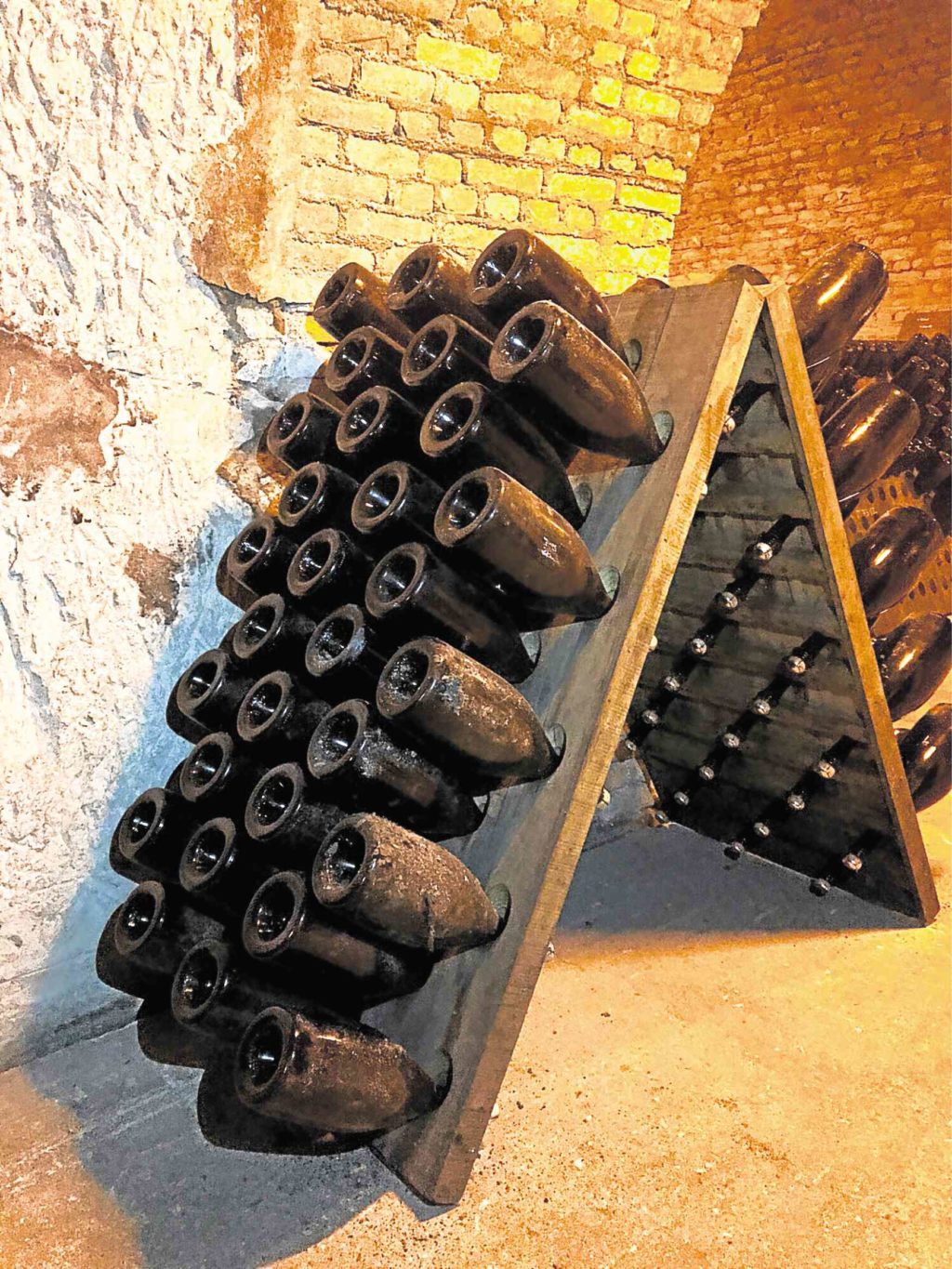Staying true to the spirit of Champagne
Gosset is the oldest wine house in Champagne, France. It was founded in the 16th century by Pierre Gosset in the town of Ay (pronounced ah-yee). At the time, they produced red wines; there was no champagne then.
Sometime in the 18th century, by accident, several winemakers, including Pierre Gosset who was an alderman of Ay, discovered that the wines produced bubbles. They studied the process, created bottles thick enough to contain the bubbles. Voila! Champagne was born.
Today the Gosset house is owned by the Renaud-Cointreau group. It was sold in 1993 to the Frapin family of the group, close friends of the Gossets.
The house now has a new showroom on a 2-hectare property in Epernay, regarded as the capital of Champagne. The property has a 1.7-hectare cellar 20 meters underground.
All in the family
Article continues after this advertisementUpon entering the house, you will see a life-size wax statue of Pierre Gosset himself. Kalina Ivanova, area export manager who delivered Gosset’s warm welcome and tour around the property, “introduced” the honorable Gosset, whom Kalina says was mayor of their village in Ay.
Article continues after this advertisementDespite being sold to the Frapin family, the company remained independent—so unlike bigger champagne houses driven by sales ultimatums. Thus, the Gosset house is able to maintain the family philosophies in champagne production that has been sacredly passed down for 16 generations: Avoiding malolactic fermentation so that the wines keep all their natural fruitiness and age gracefully.
As the smallest of the bigger champagne houses in France (remember, it is not champagne unless it is from Champagne), Gosset produces 1 million bottles a year (the Champagne region produces 320 million bottles a year).
Gosset rosé
The most popular of the bottles is the Gosset rosé.
It is an interesting story, how this rosé came to be produced: Suzanne Gosset asked the master blender to create a champagne to her preference. But the master blender incorporated red wine from Ay and created a rosé.
At the time, rosé was not very popular. But Madame Gosset liked the raspberry and wild strawberry tasting notes. Today, the rosé champagne accounts for 11 percent of all sales of Gosset. (It’s also my favorite.)
There is now also a 2007 Rosé Extra Brut, which has red currant aside from strawberry and raspberry notes; and a lingering note of pink grapefruit, said to be ideal for anyone looking for a touch of romance in their aperitif.
Gosset also has a very unique Blanc de Blanc. This is 100-percent chardonnay but it is distinct from other houses’ blanc de blanc because it uses chardonnay from land that also grows pinot noir. It has more minerality and is more masculine than other blanc de blancs.
Vintage champagnes
The house has a range of champagnes including Gosset excellence, blanc de blanc, and vintage champagnes.
Vintage champagnes present the style of the house plus the distinct characteristics of the grapes in the chosen year. Cellar masters decide when a certain year is exemplary enough to deserve a special vintage blend.
The House has made vintage blends for 2002, 2004 and 2007.
Aside from the Rosé and Blanc de Blanc, you might also want to try—or collect—the Brut Excellence, a refreshing, celebratory wine ideal for weddings (it even pairs with red meat); the Reserve Brut, which is more expressive and ideally paired with subtly spicy dishes; the Grand Blanc de Blancs Brut, which is the perfect aperitif with its elegant crispness and structure.

True-to-life wax figure of Pierre Gosset, alderman of Ay-Champagne and founder of the Champagne House of Gosset.
Champagne connoisseur
For the hard core connoisseurs, go for the Celebris Extra Brut Vintage 2002, which has been noted for its exceptional lingering sensation of purity and subtle fruitiness; the Grand Millesime Brut 2004, with lovely vanilla notes and abundant bubbles; or the Petit Douceur Rosé Extra Dry, a wine to enjoy on all occasions.
Whatever you choose, you can be sure of an elegant champagne with Gosset, a house committed to expressing the authenticity of their fine terroir. They go to extreme lengths to achieve this, unlike bigger houses: Picking the grapes by hand, avoiding malolactic fermentation, not using barrels and aging their champagne in bottles in their cellar with walls of chalk (the same material used to build the walls of the great cathedrals of France).
The result is champagne that exudes elegance with its aromas … and you can taste it!
Gosset wines are distributed in the Philippines by Artisan Cellar Wines. 2276 Pasong Tamo Ext., Makati. For inquiries call landline 880-0619.

